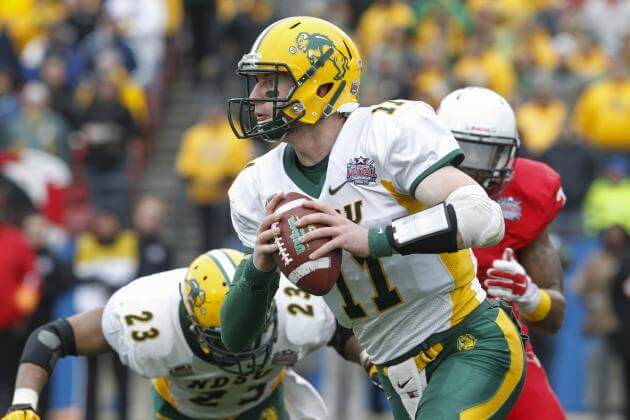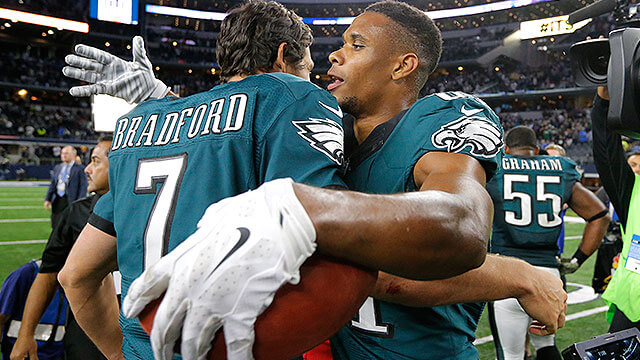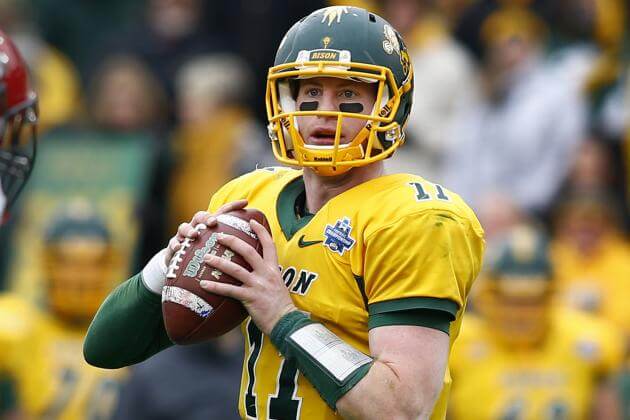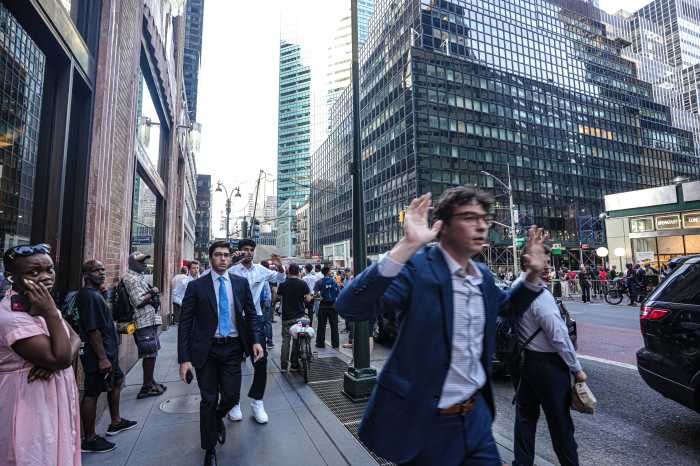The winds of change are blowing around the city of Philadelphia. A new Head Coach, a new defensive system and a new franchise Quarterback have all acquainted themselves with the city of brotherly love over the past few months..but there’s been a much more subtle change that could have a bigger impact on the future of the Eagles franchise than you might think.
That change is one in philosophy and vision. It was evident in the Eagles’ draft strategy that saw them drafting players with “character issues” or “injury concerns” and it will become even more evident as time goes on. But why are the Eagles suddenly deciding that a “Moneyball” system is the right one to implement?
We first need to understand what the Eagles are actually doing. In it’s simplest form, the concept of a Moneyball system is to accumulate talent on a very tight budget by using extensive analytical data and finding value where other teams do not. So why would they do this?
Well, as it stands the Eagles have roughly $11M in cap space. With Fletcher Cox still awaiting his monster deal, Bradford set to become the fourth most expensive Quarterback in the league at the end of next season and a further 24 players entering their final contracted year..the Eagles find themselves in a pretty sticky situation, especially with no first round pick after trading it away to acquire Carson Wentz.
Howie Roseman saw this coming as early as Free-Agency and if you take a closer look at the players signed during this period, it’s clear that the Moneyball is already rolling its way through Philadelphia.
Before the free-agency the frenzy..the Eagles were quick to tie down some of the cornerstones of the franchise to long-term deals. What did this mean for the cap? Roseman was very meticulous in the way he constructed the deals which actually see the Eagles making a saving in 2016..a saving they used to extend the likes of Lane Johnson and give a new contract to Vinny Curry.
For instance:
Malcolm Jenkins: Saving of $1.5M in 2016
Brent Celek: Saving of $3M in 2016
Then, there was the cleansing of Kelly’s presence from the roster. From the trades of DeMarco Murray, Kiko Alonso and Byron Maxwell to the cutting of Riley Cooper, the Eagles aimed to free up as much money as possible. They then went on to replace the hefty contracts with low-risk, high-reward players.
Reuben Randle: Signed a $1M one-year contract.
Seen as a player who failed to live up to the hype as a Giant, his inconsistency along with the emergence of Odell Beckham Jr has left him in the shadows. Randle is said to have a questionable work ethic and failed to see eye-to-eye with coaches. So why would they take a gamble on him? Let’s see how he compares to some of the Chiefs most notable receivers under Pederson’s tutelage in 2015:
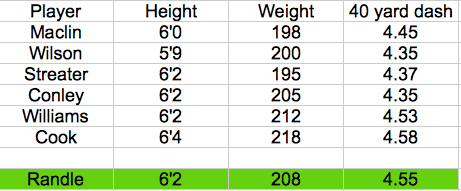
Randle fits the mould perfectly and with the Eagles searching for consistency, catching 63% of his passes in 2015 is only going to bode well. For $1M, he’s certainly worth the risk. If he doesn’t perform, Randle’s contract expires at the end of the season anyway and if he does, the Eagles have a cheap receiver who they can negotiate a more lucrative deal with.
Leodis McKelvin: Signed $6.2M two-year deal.
An eight year veteran corner, McKelvin brings with him experience both at the position and in the system that Jim Schwartz plans on implementing. Research suggests that Cornerbacks begin to decline once they reach the age of 29, meaning that 30 year old McKelvin didn’t have much of a market.. but the Eagles saw something in him.
Schwartz likes big physical corners..and Mckelvin hits hard. Out of the 317 tackles made during his 8 year career, only 49 have been assisted. For context; the same trait is also apparent in Ron Brooks, who cost the Eagles just $800k. Out of the 74 tackles Brooks has recorded, only 9 have been assisted.
It’s a trend that carries through to the Safeties as well when you look at how physical “Schwartz Safeties” have been in the past:
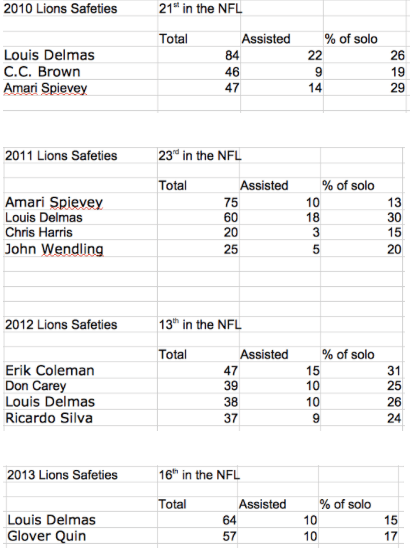
Costing a fraction of the price of Byron Maxwell, McKelvin may be the most expensive corner on the roster, but at $6.2M is that really such a bad thing?
We could list every free agent that the Eagles have picked up over the past few months from Wisniewski to Bradham and the point would remain the same. The Eagles have signed guys who didn’t appear to have much of a market, thus coming to them at a much cheaper price but who also fit exactly what the Eagles are looking for.
Then there was the Draft. After trading up to draft a Quarterback, the Eagles spent their remaining picks on players who could benefit the team in more than one way.
Isaac Seumalo: Played in every position on the Offensive Line at College
Wendell Smallwood: Caught 31 passes in 2015 as a running back
Halapoulivaati Vaitai: Has played on both sides of the Offensive Line
Blake Countess: Played in numerous positions during final year at Auburn
Jalen Mills: Has experience at both safety and cornerback
Alex McCalister: Athletic pass rusher with huge wingpsan and unique frame
Joe Walker: Led Ducks with 87 tackles, can blitz with efficiency and drop back into coverage with ease..inconsistencies show when he’s physically tackling.
This versatility gives the Eagles more ways to utilize their draft picks..picks that they were also very careful in choosing. Three of the above players saw their stock drop due to “character issues”. Their drop in value saw a low-risk, high-reward situation begin to develop for the Eagles who used the opportunity to further cement their newly adopted Moneyball philosophy.
To put the icing on the cake, the Eagles have reportedly hired Joe Douglas as their new Head Of Personnel. A great move, but also an interesting one. Why?
https://twitter.com/LiamJenkins21/status/729733113325195264
Douglas and Weidl are regarded as two of the top talent evaluators in the NFL and are partly responsible for the NFL careers of Joe Flacco and Haloti Ngata to name but two. Why would the Eagles need to bolster their personnel department with two of the league’s top talent evaluators?
Because a change in focus will see the team focusing much more heavily on the talent available to them in the mid rounds and later..especially with no first rounder next year. If the Eagles are set on “Moneyballing” their way out of a tight salary cap situation, they will need to be in the best situation to find “low-risk, high reward” talent…if that situation involved a head of personnel touted as a “future GM” and a Scout responsible for some very reputable mid-round picks then it’s certainly primed for success.
If someone had said in late December that the Eagles would have not only drafted a QB with the second overall pick, but cleansed the team of some of the most plaguing contracts on the roster as well as found suitable replacements that fit a new system before finding value and talent deep into the later rounds of the NFL Draft, I would have laughed…loudly. Without even taking to the field yet, it’s safe to say the Eagles are heading in a completely different direction compared to the dark road they appeared to be going down last season…and it’s an exciting one.
The use of analytics in sports is being adopted by more teams each and every year..but the idea of looking where other teams refuse and taking chances where other GM’s would not in order to gain a low-risk and high-reward scenario is something that is slowly becoming more and more prominent. The Eagles aren’t the first team to do this and they certainly won’t be the last..but looking back at what seemed like a chaotic offseason, it’s clear to see now that it was anything but. The Eagles have a very distinct plan, a translucent vision..and a very well thought out plan to achieve it.



